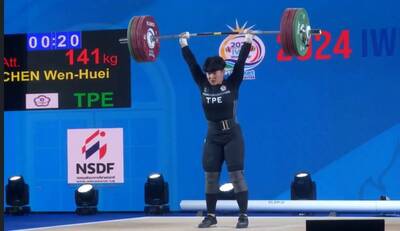《TAIPEI TIMES》 Legislator calls for strict regulation of Chinese media

Independent Legislator Freddy Lim takes part in a question-and-answer session at the Legislative Yuan in Taipei yesterday. Photo: Wang Yi-sung, Taipei Times
INFILTRATION: The government will ensure that rules against media propaganda for China are enforced and that new rules are pushed to close loopholes, the premier said
By Sean Lin / Staff reporter
Independent Legislator Freddy Lim (林昶佐) yesterday urged Premier Su Tseng-chang (蘇貞昌) to ensure that the Ministry of Culture introduces rules to regulate Chinese media outlets interviewing Taiwanese, and that relevant agencies enforce rules to safeguard personal information accessed by apps developed by foreign companies.
During a question-and-answer session in the Legislative Yuan in Taipei, Lim said that 23 online news outlets in July ran a statement released by China’s Taiwan Affairs Office.
Fifteen of the outlets belonged to the parent company of Fingermedia (指傳媒), Lim said, asking Su whether planned legislation against agents of hostile foreign forces would target such entities.
Su said that China would employ all measures to annex Taiwan, including infiltrating Taiwanese media, as a way of using the nation’s democracy and freedom against it.
The nation is aware of China’s plan to take over Taiwan, so it will not tolerate agents of the Chinese Communist Party operating in Taiwan, he said.
He would ensure that rules against the media propagandizing for China are enforced, the premier said.
If existing rules prove insufficient, the loopholes would be closed by pushing through new legislation, Su added.
Lim said he knew of two issues that could be handled immediately, without passing amendments targeting foreign agents.
In May, China-based FJTV (海峽衛視) interviewed pedestrians in Taipei, eliciting responses that would appeal to Chinese audiences, Lim said.
The Ministry of Culture should introduce guidelines for Chinese reporters working in Taiwan, as it only has guidelines for Hong Kong and Macau reporters, he added.
Some apps developed by foreign companies also ask to access users’ personal information, but if the data are going to countries with a poor record of protecting personal information — for example, China — Taiwan has the right to ban the app developers from taking the users’ data, Lim said.
As many app companies are transmitting the data to Chinese databases, the National Development Council and other agencies should investigate how user information is being safeguarded, he added.
The protection of personal information is mandated by the Personal Information Protection Act (個人資料保護法), he said, adding that new legislation is not needed.
Su said that the government has different laws in place for Chinese reporters, but would introduce new regulations if the current ones are inadequate.
Infiltration by hostile forces cannot be tolerated — the nation is striving to uphold its sovereignty, press freedom and democracy — but should be curbed, Su said.
Su appointed Vice Premier Chen Chi-mai (陳其邁) to convene a panel of agencies responsible for ensuring information security and remind them to be more vigilant of any “unscrupulous workings” targeting the nation.
新聞來源:TAIPEI TIMES



















